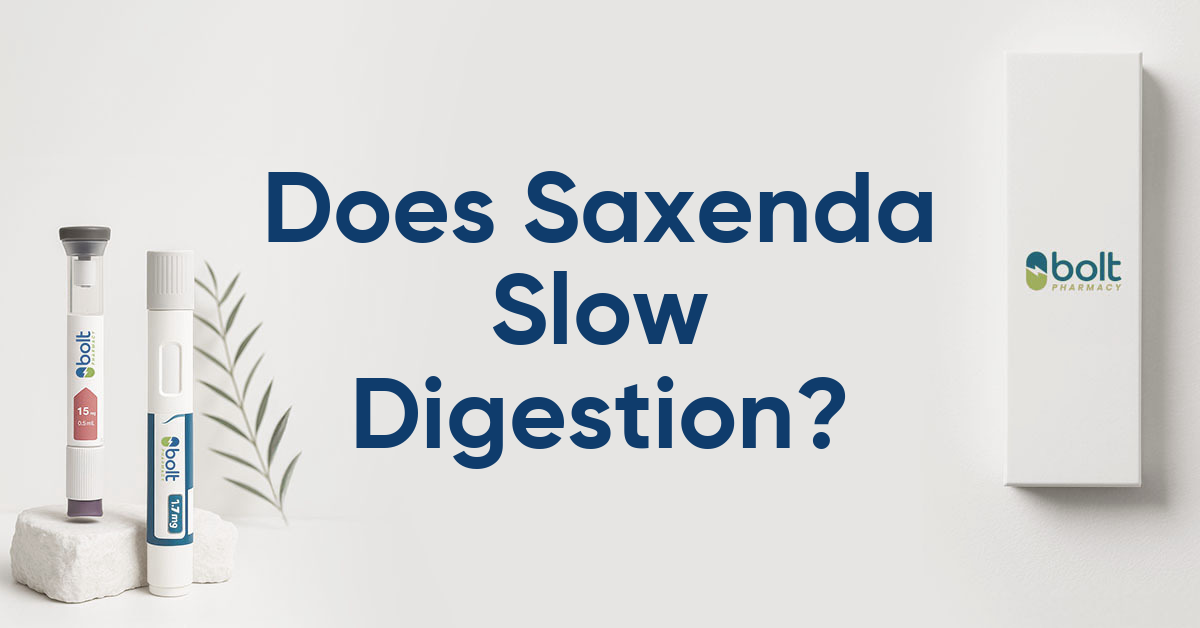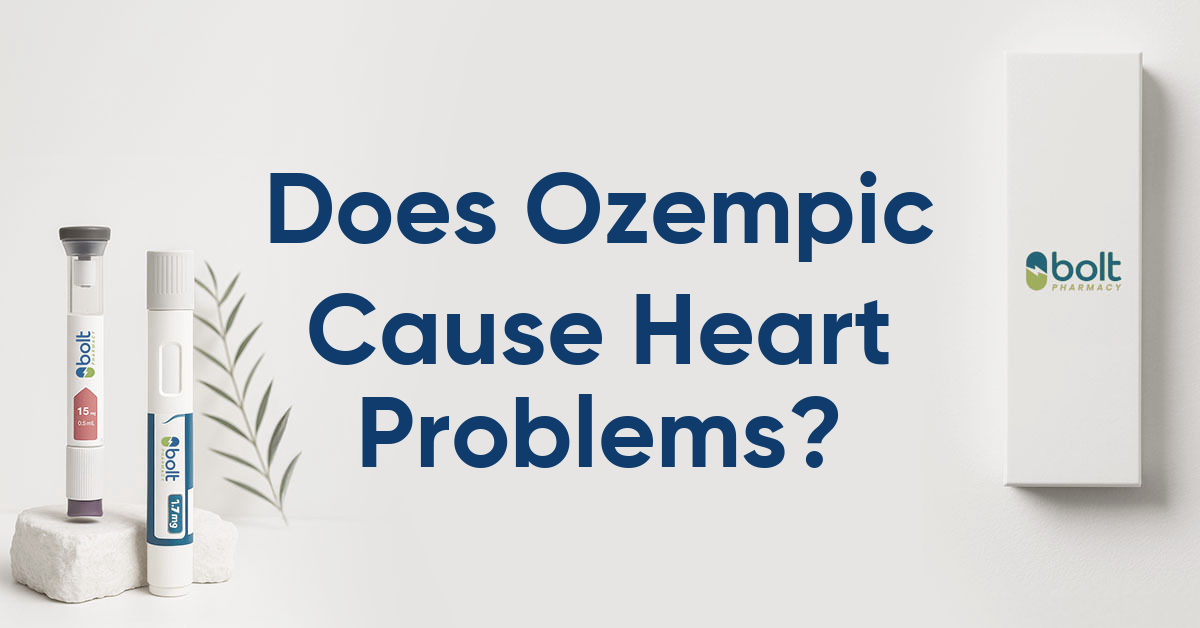Rybelsus is an oral tablet formulation of semaglutide, a GLP-1 receptor agonist licensed in the UK for the treatment of type 2 diabetes mellitus in adults. Unlike other semaglutide products such as Ozempic and Wegovy, which require subcutaneous injection, Rybelsus offers a tablet alternative for patients who prefer or require non-injectable therapy. This article explains how Rybelsus differs from injectable GLP-1 medications, provides guidance on correct administration, outlines who may be suitable for treatment, and describes common side effects. Understanding these aspects is essential for safe and effective use of this medication.
Summary: Rybelsus is an oral tablet, not an injection, containing semaglutide for type 2 diabetes treatment.
- Rybelsus is a GLP-1 receptor agonist tablet containing semaglutide with an absorption enhancer (SNAC) to enable oral administration.
- It is licensed in the UK for type 2 diabetes mellitus in adults, available in 3 mg, 7 mg, and 14 mg strengths.
- The tablet must be taken on an empty stomach with plain water only, followed by a 30-minute fasting period before eating or taking other medications.
- Common side effects include nausea, diarrhoea, and vomiting, particularly during treatment initiation and dose escalation.
- Rybelsus is not licensed for weight management in the UK and requires careful patient selection and monitoring by healthcare professionals.
Table of Contents
Is Rybelsus an Injection or Tablet?
Rybelsus is an oral tablet, not an injection. This distinguishes it from other medications in the same drug class (GLP-1 receptor agonists), such as Ozempic and Wegovy, which are administered via subcutaneous injection. Rybelsus contains semaglutide as its active ingredient—the same medication found in these injectable formulations—but has been specially formulated to be taken by mouth.
The development of an oral GLP-1 receptor agonist represents a significant pharmaceutical advancement. Semaglutide is a peptide molecule that would normally be broken down in the digestive system before reaching the bloodstream. To overcome this challenge, Rybelsus tablets contain an absorption enhancer called sodium N-(8-[2-hydroxybenzoyl] amino) caprylate (SNAC), which facilitates absorption of semaglutide through the stomach wall.
Rybelsus is licensed in the UK for the treatment of type 2 diabetes mellitus in adults, either as monotherapy when diet and exercise alone do not provide adequate glycaemic control and when metformin is considered inappropriate due to intolerance or contraindications, or in combination with other glucose-lowering medications. It is available in three tablet strengths: 3 mg, 7 mg, and 14 mg. The 3 mg dose serves as an initial starting dose to improve gastrointestinal tolerability, whilst the 7 mg and 14 mg doses are used for maintenance therapy.
For patients who have needle phobia or prefer not to use injectable medications, Rybelsus offers an alternative route of administration whilst providing the metabolic benefits associated with GLP-1 receptor agonism, including improved glycaemic control. It is important to note that Rybelsus is not licensed for weight management in the UK, although weight change may occur as a secondary effect of treatment.
How to Take Rybelsus Correctly
Correct administration of Rybelsus is essential for optimal absorption and therapeutic effect. The specific instructions must be followed precisely, as the medication's bioavailability is significantly affected by food, drink, and other medications.
Rybelsus must be taken on an empty stomach, first thing in the morning. The tablet should be swallowed whole with up to half a glass (approximately 120 ml) of plain water only—no other beverages are permitted. Do not split, crush, or chew the tablet, as this will affect how the medication is absorbed. After taking Rybelsus, patients must wait at least 30 minutes before eating, drinking anything else, or taking other oral medications. This fasting period is crucial; taking food, beverages (including tea, coffee, or juice), or other tablets too soon can substantially reduce semaglutide absorption and diminish the medication's effectiveness.
The typical dosing schedule follows a gradual escalation approach:
-
Starting dose: 3 mg once daily for 30 days
-
First increase: 7 mg once daily (this may be the maintenance dose for some patients)
-
Maximum dose: 14 mg once daily if additional glycaemic control is needed after at least 30 days on 7 mg
The initial 3 mg dose is not therapeutically effective for glycaemic control but serves to improve gastrointestinal tolerability as the body adjusts to the medication. Dose escalation should only occur after the specified minimum duration at each dose level.
If a dose is missed, skip that dose entirely and take the next dose the following morning. Never take two doses on the same day to compensate for a missed dose. For interruptions of several days, speak to your prescriber; re-titration may be considered based on tolerability.
If you take levothyroxine, thyroid function monitoring may be needed because exposure to levothyroxine can increase when taken with oral semaglutide.
Who Can Use Rybelsus in the UK
Rybelsus is licensed for adults aged 18 years and over with type 2 diabetes mellitus. The Medicines and Healthcare products Regulatory Agency (MHRA) has approved its use when dietary measures and exercise alone do not provide adequate blood glucose control. According to NICE guidance (NG28), GLP-1 receptor agonists like Rybelsus may be considered as part of dual or triple therapy regimens for type 2 diabetes management.
NICE recommends considering GLP-1 receptor agonist therapy for adults with type 2 diabetes when:
-
Triple therapy with metformin and two other oral drugs has not achieved or maintained HbA1c targets, and
-
The person has a BMI of 35 kg/m² or higher (typically adjusted by 2.5 kg/m² lower for people from Black, Asian, and other minority ethnic groups), or
-
Insulin therapy would have significant occupational implications or weight loss would benefit other significant obesity-related comorbidities
However, Rybelsus is not suitable for everyone. It is not indicated and should not be used in patients with type 1 diabetes or for the treatment of diabetic ketoacidosis. The medication should not be used during pregnancy, and breastfeeding is not recommended during treatment. Women of childbearing potential should use effective contraception during treatment and for two months after discontinuation.
Particular caution is required in patients with:
-
A history of pancreatitis (acute or chronic)
-
Severe gastrointestinal disease, including gastroparesis
-
Diabetic retinopathy (regular ophthalmological monitoring recommended)
Regarding renal function: No dose adjustment is required in renal impairment, including severe impairment, although experience in end-stage renal disease is limited. Patients should be monitored for dehydration-related renal effects, particularly if experiencing persistent gastrointestinal symptoms.
It is important to emphasise that Rybelsus is not licensed for weight loss in the UK. Healthcare professionals should conduct a thorough medical history and risk assessment before initiating treatment. Prescribing decisions should be individualised, considering the patient's clinical circumstances, comorbidities, treatment preferences, and potential benefits versus risks.
Common Side Effects and What to Expect
Gastrointestinal side effects are the most frequently reported adverse reactions with Rybelsus, occurring in a substantial proportion of patients, particularly during treatment initiation and dose escalation. These effects are related to the mechanism of action of GLP-1 receptor agonists, which slow gastric emptying and affect gastrointestinal motility.
The most common side effects include:
-
Nausea (very common, affecting more than 1 in 10 people)—typically most pronounced during the first few weeks of treatment
-
Diarrhoea (very common)—usually mild to moderate in severity
-
Vomiting (common, affecting up to 1 in 10 people)
-
Abdominal pain and discomfort (common)
-
Decreased appetite (very common)—which contributes to weight loss
-
Constipation (common)
-
Dyspepsia and flatulence (common)
These gastrointestinal symptoms generally diminish over time as the body adjusts to the medication. The gradual dose escalation protocol is specifically designed to improve tolerability. Patients can help manage these effects by eating smaller, more frequent meals, avoiding high-fat foods, and staying well hydrated.
Less common but more serious side effects require prompt medical attention. Patients should contact their GP or seek urgent medical advice if they experience:
-
Severe, persistent abdominal pain (potentially indicating pancreatitis)
-
Signs of dehydration from persistent vomiting or diarrhoea, which can worsen kidney function
-
Symptoms of hypoglycaemia when used with insulin or sulfonylureas (sweating, tremor, confusion, palpitations)
-
Visual changes or eye problems
-
Symptoms of gallbladder disease (upper abdominal pain, fever, jaundice)
Stop and seek urgent medical help if you develop severe, persistent abdominal pain (pancreatitis) or signs of gallbladder problems. Seek emergency help for signs of a severe allergic reaction (e.g., swelling of face/tongue, breathing difficulty, collapse).
Hypoglycaemia risk is generally low with Rybelsus monotherapy, as GLP-1 receptor agonists work in a glucose-dependent manner. However, when combined with insulin or sulfonylureas, the risk increases, and dose adjustments of these concomitant medications may be necessary.
Patients should be counselled about potential side effects before starting treatment and encouraged to report persistent or concerning symptoms. Most people tolerate Rybelsus well once the initial adjustment period has passed, but ongoing monitoring and support from the diabetes care team remain important throughout treatment.
Suspected side effects should be reported via the MHRA Yellow Card Scheme at yellowcard.mhra.gov.uk or via the Yellow Card app.
Frequently Asked Questions
Can I take Rybelsus with food or coffee?
No, Rybelsus must be taken on an empty stomach with plain water only, and you must wait at least 30 minutes before eating, drinking anything else, or taking other medications. Food, beverages, and other tablets taken too soon significantly reduce absorption and effectiveness.
Is Rybelsus approved for weight loss in the UK?
No, Rybelsus is not licensed for weight management in the UK. It is approved only for the treatment of type 2 diabetes mellitus in adults, although weight change may occur as a secondary effect of treatment.
What should I do if I miss a dose of Rybelsus?
If you miss a dose of Rybelsus, skip that dose entirely and take your next dose the following morning. Never take two doses on the same day to make up for a missed dose.
The health-related content published on this site is based on credible scientific sources and is periodically reviewed to ensure accuracy and relevance. Although we aim to reflect the most current medical knowledge, the material is meant for general education and awareness only.
The information on this site is not a substitute for professional medical advice. For any health concerns, please speak with a qualified medical professional. By using this information, you acknowledge responsibility for any decisions made and understand we are not liable for any consequences that may result.
Heading 1
Heading 2
Heading 3
Heading 4
Heading 5
Heading 6
Lorem ipsum dolor sit amet, consectetur adipiscing elit, sed do eiusmod tempor incididunt ut labore et dolore magna aliqua. Ut enim ad minim veniam, quis nostrud exercitation ullamco laboris nisi ut aliquip ex ea commodo consequat. Duis aute irure dolor in reprehenderit in voluptate velit esse cillum dolore eu fugiat nulla pariatur.
Block quote
Ordered list
- Item 1
- Item 2
- Item 3
Unordered list
- Item A
- Item B
- Item C
Bold text
Emphasis
Superscript
Subscript












